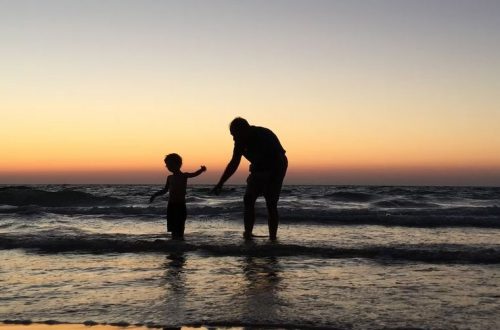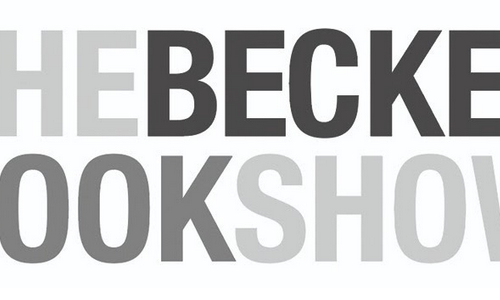 In years past, my usual mode for reading the Bible through every year involved starting in Genesis and reading right through to Revelation. I estimated that about four chapters per day would get me through in under a year’s time. The method worked reasonably well, but it wasn’t without its problems. Sometimes I would miss a day (or days) and get behind, and I had no way to keep up with my progress. I needed a schedule so that I could keep myself accountable for finishing in a year.
In years past, my usual mode for reading the Bible through every year involved starting in Genesis and reading right through to Revelation. I estimated that about four chapters per day would get me through in under a year’s time. The method worked reasonably well, but it wasn’t without its problems. Sometimes I would miss a day (or days) and get behind, and I had no way to keep up with my progress. I needed a schedule so that I could keep myself accountable for finishing in a year.
In 2009, therefore, I did something I had never done before. I followed a Bible reading plan. I adopted Robert Murray M’Cheyne’s Calendar for Daily Readings. It provided the schedule that I needed. It also outlined daily readings from different sections of the Bible. On any given day, I would be reading something from an Old Testament narrative, something from the prophets, and something from the New Testament. Although this plan provided the accountability that I needed, I found it difficult to be reading from three to four different biblical books every day. I know that not everyone is like me, but that approach lacked the focus that my brain requires. I missed reading the Bible in its canonical arrangement and focusing on one book at a time. I wished for a schedule that would go from Genesis to Revelation in canonical order.
So this year, I have created a plan that does just that, and I would like to share it with you. This plan calls for reading all the books of the Bible in canonical order in one year. Each day’s reading is about 3-4 chapters in length, with the exception of the Psalms (which are covered in 5 chapters per day). The idea is to read longer chapters in groups of three (e.g., Pentateuchal narratives, Gospels) and shorter chapters in groups of four. There are 7 “catch-up” days scattered throughout the calendar. You can download the calendar below.
WORD: 2010 Bible Reading Plan
Christians need the Bible like humans need water. The Bible is our life-blood. The Lord Jesus plans to perfect His people by means of His word. That is why He prayed, “Sanctify them in the truth; Your word is truth” (John 17:17). Since the Bible is the word of God written, our progress in sanctification relies on our contact with the 66 books of the Old and New Testaments. Every Christian, therefore, should make it a priority to master this book.
I want to encourage you to commit to reading the entire Bible this year. It may seem a daunting task at first. But it really isn’t. If you will make a plan and stick to it, then you can do it. I am a pretty slow reader, and even I can do it. So I know that you can too.
If you find this plan helpful, I hope you’ll use it. In any case, I hope you will commit to reading the Bible all the way through this year. It will be a blessing to you if you do.
“How can a young man keep his way pure? By keeping it according to Thy word.” -Psalm 119:9
“When you received from us the word of God’s message, you accepted it not as the word of men, but for what it really is, the word of God, which also performs its work in you who believe.” -1 Thessalonians 2:13
—————————————–
P.S. My friend Mitch Maher has developed a plan for reading the New Testament through in a year. Read more about it here.
P.P.S. I posted my plan before I went to bed last night only to find that Justin Taylor has posted this morning several of the plans from Crossway here. There aren’t any that follow a strict canonical arrangement one book at a time. Nevertheless, there are some great resources here, and you should take a serious look at them.




22 Comments
don gale
Thanks for the encouragement and the plan. I like M’Cheyne’s plan because you’re in the NT, OT, and Psalms all year. It’d be interesting to have a chronological plan. Not just what order books were written, but where, for example, stories in Samuel, Kings, etc would be read along with the parallel passages in Psalms and the Prophets.
Charles
Thanks for posting this. I am a bib believer in reading the Bible yearly. I have posted a link to this at my blog.
Charles
Oops. Should be “big.”
Julie
Thanks for posting your plan. I think it will be perfect for me! I appreciate it.
Ryan Sanders
I tried the OT, Psalms, Proverbs, and NT portions each day last year too. While it’s a great way for some I’m sure, it felt too scattered for me as well. I’m going to attempt your method. Thanks for posting.
Pingback:
Guy Fredrick
Over the years, I’ve read the Bible in several ways, from the typical Genesis to Revelation, following the historical pattern (skipping about, following the order in which the books were written), and also by focusing in on one aspect of the Word for a year — the Proverbs (read each of the 31 chapters a day), Psalms, Gospels, NT, OT, etc. I’ve found that varying the reading keeps the Word fresh.
I also read in different translations, including the Message and New Living Translation versions. My goal this year is to complete a reading of the NT in Greek, even though I’ll have to fight my way through almost every word. I expect that the study will be most fruitful of all!
Doug
My wife and I read through the bible together every other year. So far we have used a different method each time and we’ve always managed to finish on time. I certainly understand the difficulty in missing a day or two. We would just double up the next night. The one we are finishing up on now provides two “reflection” days each month (no reading assigned). This has worked out really good for us as we finish up tonight leaving one reflection day on the table.
I would love to find a chronological plan (my favorite of all we’ve done so far, reading the books in the order they were written) which would also incorporate two reflection days a month. I don’t think we would use it every time, as I do like changing it up from time to time, but I would love to have it to come back to every now and again. I don’t know what it was but I loved starting off with the book of Job, and I love reading through the bible one book at a time.
Thanks for the post Denny. 🙂
D.J. Williams
Did a chronological plan a few years ago and loved it. Reading David’s psalms intersperced with the narratives in Samuel was really cool.
Michael Templin
Excellent idea Dr. Burk, Have you ever read through the entire bible in Greek in a year (LXX the GNT)?
Don Johnson
I have been tempted to get the NKJV Chronological Bible and read it, context is important.
Jesse McMillan
Logos bible software also has an excellent tool for Bible study planning. It is extremely flexible and can be imported into Outlook with one click. It also provides you a check box next to each reading so that you can see where you are if you fall behind.
I’m planning to read through the Bible in 2010 using a plan I generated in Logos. (Actually, I’ve already started just in case I get behind and need some lagniappe:)
Andrea
Cool! Thanks Denny!
Paul Hudson
Thanks so much for the post. We all need to be in the Word daily, and we all need encouragement to be there. I have been using D.A. Carson’s “For the Love of God: A Daily Companion for Discovering the Riches of God’s Word” for the past year and a half, and plan to continue in 2010. Carson uses M’Cheyne’s daily reading plan, and provides a short commentary on one of the four readings each day. There are actually two volumes of Carson’s comments, the two offering commentary on different readings for each day. I have been using Volume 2, and recently purchased Volume 1 to use in 2010. At first, the four readings from different portions of the Old and New Testaments was a bit distracting (as opposed to reading four chapters from one book each day), but I quickly began to appreciate more and more how God’s Word is deeply interconnected. Using the M’Cheyne plan will take you through the whole Bible in the year, and the Psalms and Gospels a second time. Some people, finding that the whole M’Cheyne plan doesn’t give them enough time for meditation and prayer, just do half of the plan, taking two years to get through the whole program. Carson’s volumes allow for this, with each volume focusing on one half of the M’Cheyne readings. God Bless!
Denny Burk
Paul,
I used the M’Cheyne plan in 2009. I read through the first three columns, but not the fourth. Dropping the fourth column eliminates the second reading of the NT and Psalms.
Thanks for the comment.
Denny
Nick
This will be my first year reading through the Bible with a Bible reading plan. I’m going to use Hank Hanegraaff’s “Legacy” reading plan:
http://www.equip.org/site/legacy_reading_plan
And here’s the explanation of the importance of this style of reading plan:
http://www.equip.org/PDF/LEGACY_READING_PLAN_EXPLAINED.pdf
One of my favorite things I like about it is in the Summer and Fall reading months. It has you reading the Hebrew prophets in the Summer and then right after that you jump into John 1,2,3, John and Revelation! The language used in these books is sometimes very hard to understand for the modern reader so jumping right into Revelation and John after reading the Hebrew prophets should really help seeing as these books draw heavily from the Old Testament prophets language.
That’s only one reason I chose this reading plan though. I strongly suggest reading through the second link I gave above and consider reading through the Bible with this plan in the future.
Wade Rials
Thanks Dr. Burk,
I like the canonical approach better. My wife and I are going to use your schedule for our daily devotions in 2010.
Luke
Thanks, bro.
Ewin James
Concerning your quibbling with DA Carson’s conclusion that Paul meant praying in tongues when he told the Corinthians that “I speak in tongues more than you all”: The only possible reference Paul could be making there was about speaking in tongues in private. The reason: Paul wasn’t talking about speaking a human language outside of the church. The context was unknown tongues in private and in the church. And as far as we know Paul spoke only Hebrew Greek and Aramaic. That Paul spoke multiple languages, according to theologians, has no biblical support.
And those who say there is no tongues today insist that because the word is ‘language’ whatever Paul was speaking about in Corinth had to be human language, need to consider this: There is one one word for whatever is spoken, on earth heaven or anywhere in the universe. The word is LANGUAGE.
Pingback:
Amelia Scordato
I found your blog through a web search for Bible reading plans. Thank you, the format of your plan was perfect for me, as I was looking for a strictly OT Prophets reading plan. I printed your year long plan, folded it in thirds, and use it as a bookmark in my Bible as I cross off the chapters of the OT prophetic books. I looked through PAGES of plans, but yours works the best. THanks again for sharing.
Sheila Cobb Banks
I love Canonical order and have Bibles on my cell phone. I would like your plan for 2011. I read the bible last year in parts. Due to associates degree completion I started late about six months after our church body and was inconsistent missing here and there. I need an email or alarm. I do home health and read to the baby doll I worked for as she was going to heaven. It helped us both. I graduated in May and have commited to making this a lifetime practice. I was blessed with my birth Father in relationship last May and JESUS gave us an unbelievable relationship!!! After 43 years we have Love, and I forgave him easily for not being there all about JESUS!!!!!!! GOD bless you and your GOD works! Love Sheila some day a book!